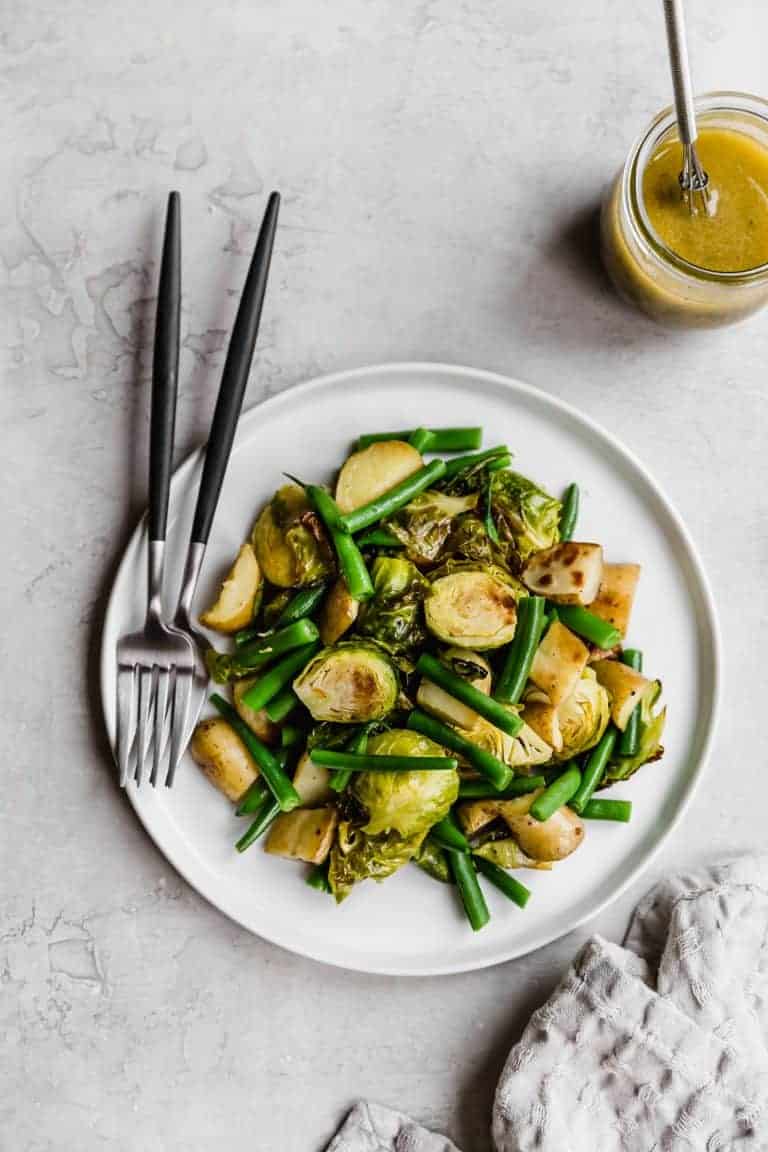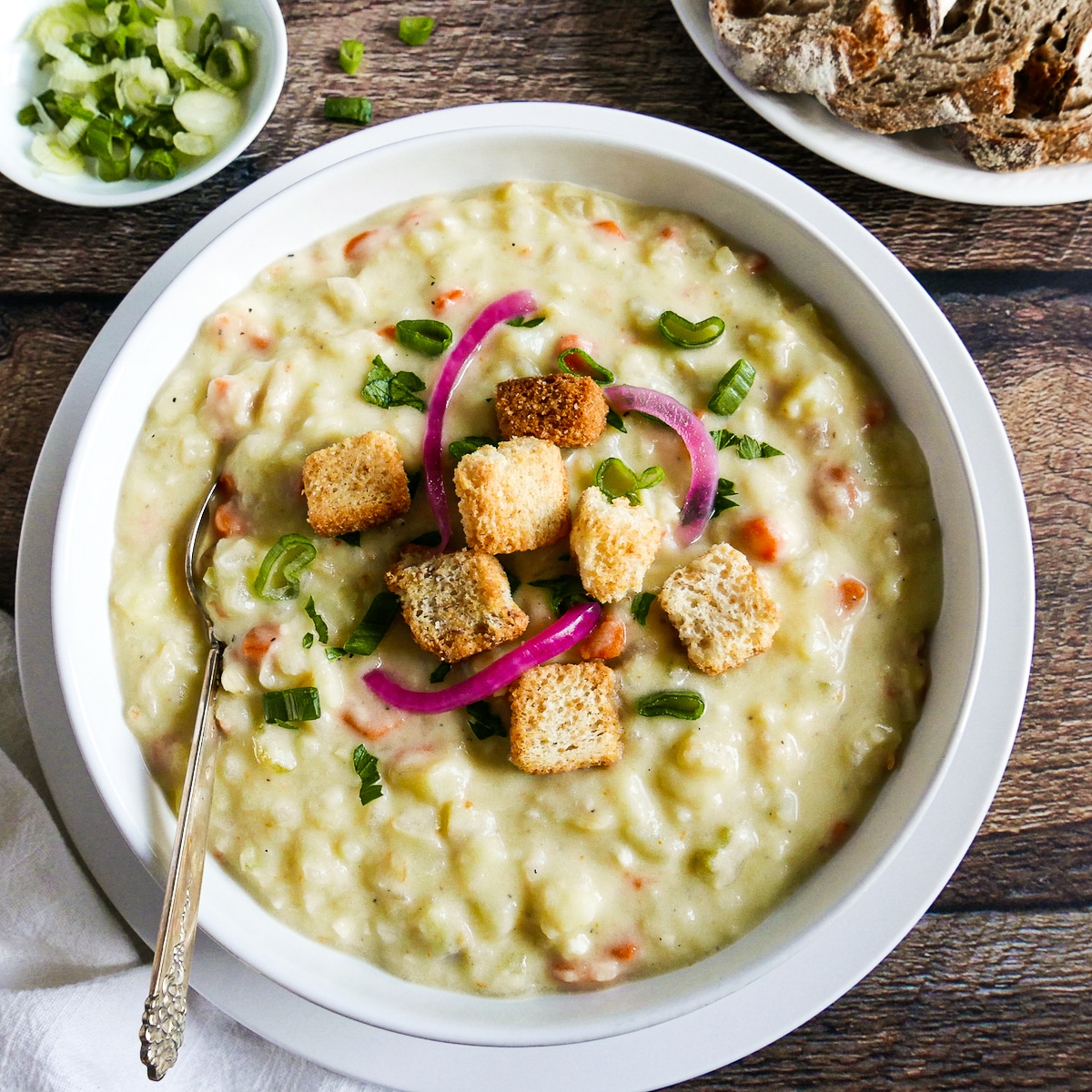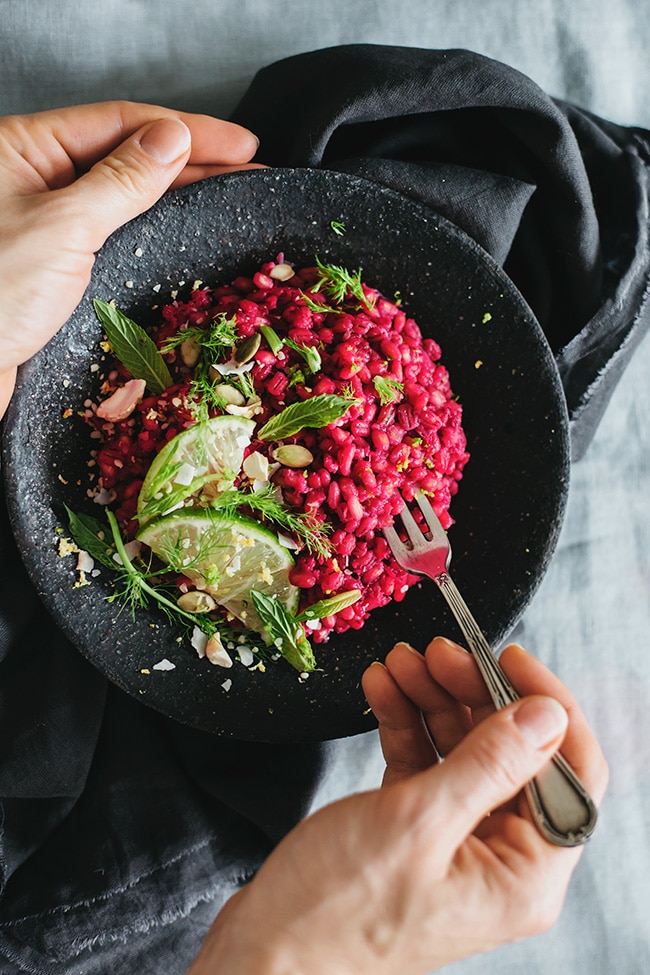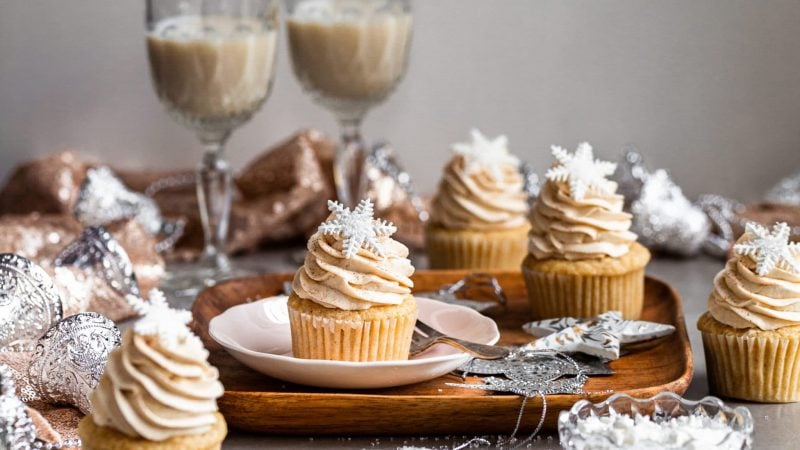Earlier this weekend I invited a friend and client to consider a mental exercise that helped me in recovery and continues to help me when I’m struggling to embrace the present.
I asked her to imagine herself five or six decades from now, looking back on this moment. How would she be glad to have spent her time? What would feel like the most valuable experience to choose?
I was encouraging her to honor a holiday weekend, which involved changes to her normal routine with food and movement. She was struggling a little with the interruption in her habits. Yet as a result of going with the flow, she was able to spend more quality time with family.
I used to use this visualization all the time when I was struggling to make peace with experiences that were a challenge to my norm.
Some examples: sleepy holidays, restaurant meals that were a departure from my usual way of eating, weekends of travel or visiting friends.
In these situations, the part of me that was still sick would struggle with a lot of guilt about having less activity and making more “indulgent” food choices than usual.
When I thought about looking back on the moment fifty years hence, it would immediately bring me back to a healthy perspective.
I knew that, decades into the future, I wouldn’t care at all about a few calorie-dense meals or missed opportunities to move.
What I would care about—and, hopefully, cherish—was the memory of being with people I loved. I would treasure the fact that I’d had an experience.
We have only so many moments in which we can branch out, do new things, and get a taste of something that isn’t ordinarily possible.
I’m not five or six decades past my recovery. But I think my younger self would already be so relieved and thankful for the life that I live now.
In this life, a step outside of my routine is something that I welcome and applaud myself for doing, rather than a reason to punish myself.
A few days after I moved this summer, I wrapped up a long, dusty, sweaty day of unboxing and hauling bags of garbage to the basement of my new building.
I was physically tired and frustrated that I hadn’t clearly marked, and therefore couldn’t find, so many of the things I needed: pillows and sheets, most immediately, but also my coffee maker.
At a certain point, I knew that it was useless to keep working. So I showered, changed into something nice, and stopped into what is now my beloved neighborhood bar and restaurant.
I drank wine and ate a panzanella salad and a crispy, square, Sicilian-style pizza at the bar.
As is always the case when you’re really tired, everything tasted unusually amazing. I mopped up the last bit of vinaigrette with the salty, tomato-crusted corners of my pie.
I was too beat from unpacking to call a friend that night. Yet I wanted to do something nice for myself to celebrate moving, and I did. I took myself out to dinner.
On the way home, I looked up at the sky and thought about how, at one point in my life, this kind of thing would simply not have been possible: me treating myself to a delicious meal without any social occasion or concrete reason to go out.
A few months ago, I mentioned to a friend how nice it is to live in a part of my city that’s filled with enticing things to eat and drink.
“Keep eating and drinking your way around the neighborhood and the world,” he said. “It’s literally what we need as humans to keep us alive.”
Yes, this is literally the case. But my friend was talking about a different kind of sustenance as well, the kind that keeps our spirits alive.
In 2009, palliative caregiver Bonnie Ware wrote an article that later turned into a memoir, entitled The Top Five Regrets of the Dying. You may already have seen this list at some point.
The regrets that Ware has most commonly heard about as people neared the ends of their lives are:
- “I wish I’d had the courage to live a life true to myself, not the life others expected of me.”
- “I wish I hadn’t worked so hard.”
- “I wish I’d had the courage to express my feelings.”
- “I wish I had stayed in touch with my friends.”
- “I wish that I had let myself be happier.”
I think about this list often when I’m beating myself up about not having worked as much as I planned on over a weekend. (I am doing that very thing at this precise moment.)
I think about it when I’m in some sort of anxious tailspin about thinking that I said the “wrong” thing, or overshared.
It helps me focus on what matters when I’m tempted to choose routine and schedule over an unexpected opportunity to see a friend or say yes to something fun and different.
Basically, the list does the same thing that my exercise of imagining a backwards glance at my life helps me to do: it redirects my priorities toward richness and fullness of experience.
Maybe you’re currently struggling with the disruption of a holiday weekend in some way. If you are, yet you were able to experience love, connection or pleasure in the past few days, maybe this list will help you to find clarity and appreciation.
Happy Sunday, friends. Here are some recipes and reads.
Recipes
This hearty vegetable salad would be perfect for using up leftover Brussels sprouts, green beans, and potatoes.
I want to use my baked, crispy tempeh bacon in this delectable vegan panini.
Nothing like a creamy bowl of potato soup for cold weather.
I just love the brilliant color of this beet “barlotto.”
We’re launching into the holiday season, and my sweet tooth is all about these lovely vegan eggnog cupcakes.
Reads
1. Speaking of family and loved ones, here’s a guide to making an ancestral altar at home, regardless of your religion or culture of origin.
2. Inside the heirloom apple revival.
3. I agree with psychiatrist Ken Duckworth that people who have lived experience of mental health struggle have special insight and expertise to offer those who are in treatment roles. My clients deepen my understanding of eating disorders every single week. They’re the experts.
4. I think this essay, which links our present with natural disasters of the past, is really special.
Author Anna Badkhen details some of the markers and mementos that human beings who lived through droughts and famines in other centuries left behind. It leads her to the question of what souvenirs, if any, will survive our moment of climate change catastrophe?
5. How the slow cooker changed the world.
Wishing you a gentle conclusion to the weekend, everyone. Till soon,
xo
You might also like
For dietitians, the DI year is supposed to be a pre-professional experience, supervised work that prepares us for the realities of practice. One of these realities, I’m starting to realize, is the exercise of judgment. When I started the DI, I assumed that I’d be trained in guidelines and standards that would neatly inform all of my interventions and decisions. I’ve gotten plenty of exposure to evidence-based guidelines and best practices, but what I didn’t understand before the DI—and what I’m coming to…
First, a heartfelt thank you for the kind, supportive words about Power Plates this week. I’m so grateful for them, and to those of you who have been cooking and sharing on Instagram, I can’t tell you how much joy it gives me to see the recipes take life in other peoples’ kitchens. It’s been interesting to observe the feelings that have come up since the book came out. I felt a little jittery before the release, which is probably normal, but the…
It means a lot to me that, during my spell of intermittent weekend reading posting and sporadic recipe sharing this winter and spring, this community has given me the space to pop in and out of blogging as I’m able. A few of you have even emailed to say that you find it nice when I post just to say that I can’t post. We’re all so hard on ourselves. If my being too busy or overwhelmed to write much creates just a…
In When Things Fall Apart, Pema Chodron writes that “Nothing ever goes away until it has taught us what we need to know.” I realized the truth of her words this past week. Something important—a lesson I keep thinking I’m finished with—returned to me. And without wishing to enfold the story in neat endnotes, I can say that I think I may finally have learned what I needed to know. A big chunk of it, anyway. There’s more to this: lessons in healing,…







Leave a Comment